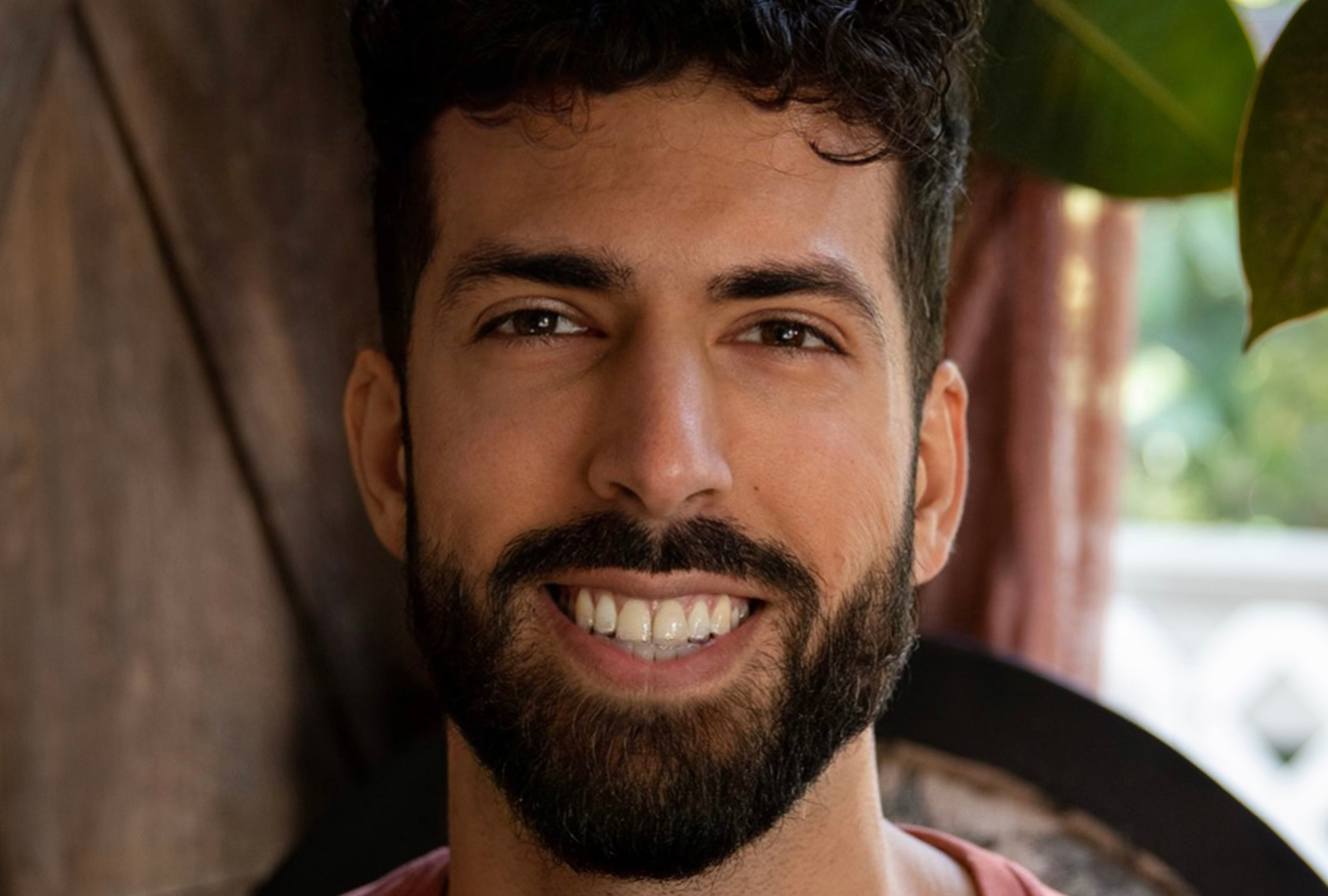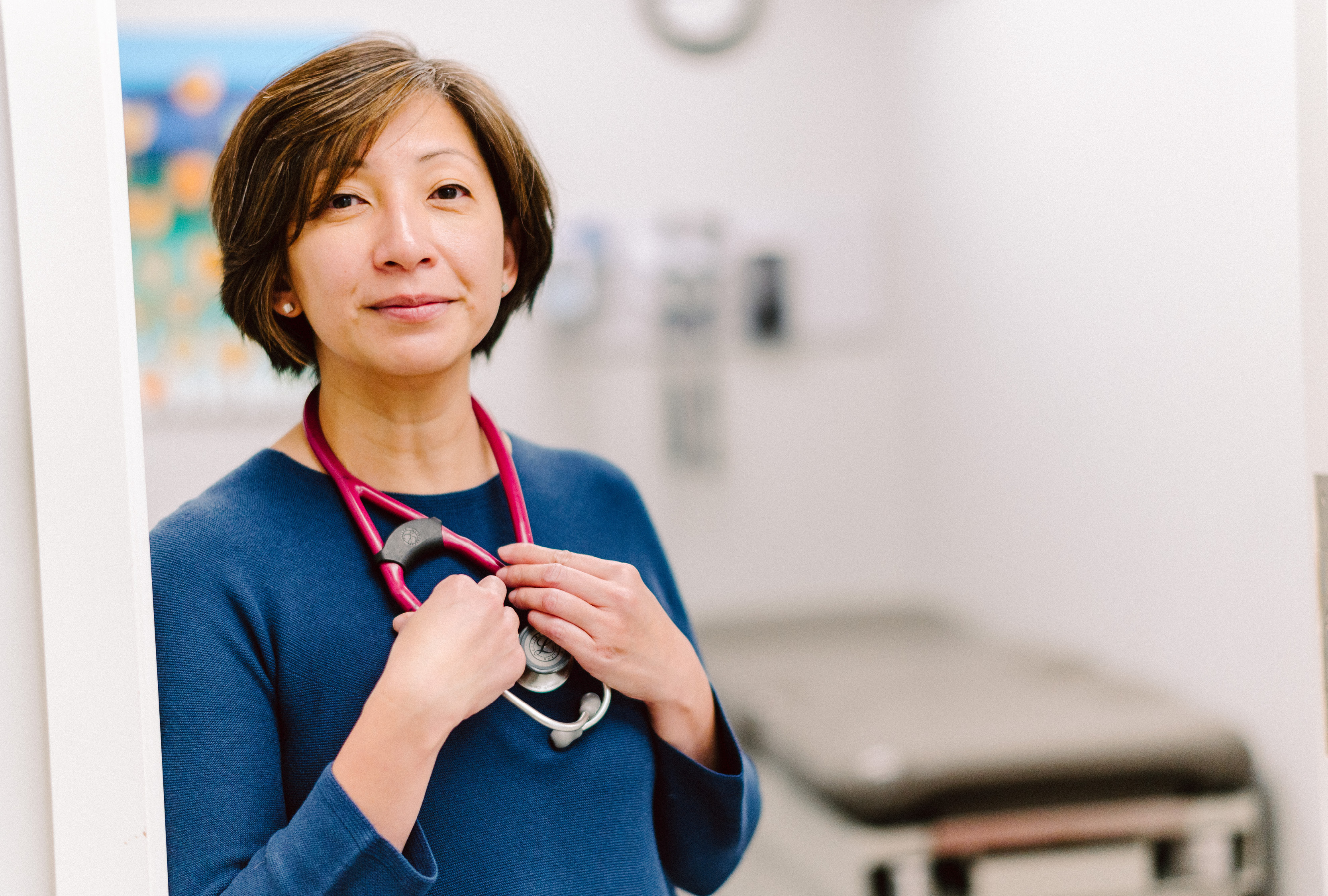This article originally appeared in the Fall 2022 issue of the Ontario Medical Review magazine.
Exploring solutions to improve quality of care
Family physician Dr. Catherine Yu describes meeting one of her patients who had gone 20 years without seeing a doctor.
“Ever since she had arrived in Canada, she had not been able to establish a trusting enough relationship with anyone to even open the doors up to finding a doctor,” said Dr. Yu, medical director of Health Access Thorncliffe Park and chair of the East Toronto Family Practice Network. “I spent an hour just taking her social history and listening to her story. I would say that listening to her and being able to gain her trust was a key step to her care.”
At the time, the patient had uncontrolled diabetes and her blood glucose level was more than three times normal. “Three years later, without much medication, with her food security being addressed and her mental health being addressed in a culturally sensitive way, her physical health is just fine,” she said.
This type of support is extremely important considering that one in four Ontario residents was born outside of Canada, while 27 per cent of Ontarians speak languages other than English or French at home. This presents language, cultural and social barriers for health-care providers and presents a barrier to access to care for some groups of patients.
And research shows that people in marginalized communities have worse health outcomes. For example, the incidence of Type 2 diabetes is almost two times higher in Black communities compared to white communities and heart disease rates for Indigenous people are as much as 50 per cent higher than in the general Canadian population.
But Ontario’s doctors are stepping up to address the social determinants of health to break down these barriers to care.
 Dr. Latif Murji, a family and emergency medicine physician and co-ordinator of Global Health, Diversity, and Health Equity at Scarborough Health Network founded Stand Up for Health, which uses simulation experiences to train health professionals and students about health equity and the social determinants of health.
Dr. Latif Murji, a family and emergency medicine physician and co-ordinator of Global Health, Diversity, and Health Equity at Scarborough Health Network founded Stand Up for Health, which uses simulation experiences to train health professionals and students about health equity and the social determinants of health.
“I grew up in Scarborough and I had my own lived experiences of the social determinants of health and inequities. When I was going through my medical training, I realized that my peers were not connecting with these concepts the same way that I was,” Dr. Murji said.
Dr. Latif Murji is a family and emergency medicine physician and co-ordinator of Global Health, Diversity, and Health Equity at Scarborough Health Network, founded Stand Up for Health, which uses simulation experiences to train health professionals and students about health equity and the social determinants of health.
“Stand Up for Health gives people insight into what it is like to face some of these barriers and inequities to increase empathy and spark discussions amongst health-care professionals of what we can do to bridge those gaps and to advocate for our patients."
Through the training, which uses an iOS app, participants experience the life of a seven-year-old boy from Scarborough and travel through 30 years of his life, working through financial, social and health challenges. The scenarios are derived from the experiences of real Canadians living in poverty. “Based on the decisions you make, there are different consequences, and those consequences impact your trajectory through life, just as the social determinants of health would,” he said.
After the experience, participants discuss the challenges faced by different multicultural communities and how public policy impacts these groups. They discuss solutions and leave with a plan of how to reduce inequities in their practice.
"I grew up in Scarborough and I had my own lived experiences of the social determinants of health and inequities. When I was going through my medical training, I realized that my peers were not connecting with these concepts the same way that I was." — Dr. Latif Murji
Dr. Murji also launched the VaxFacts Clinic last year, a judgment-free phone line where people can speak to a doctor about COVID-19 vaccination. The clinic operates from 9 a.m. to 8 p.m. seven days a week to provide access to shift workers or people who have more than one job. Interpreters provide services in more than 200 languages. Callers can also choose to speak with a Black physician through a partnership with the Black Physicians’ Association of Ontario and they do not require OHIP to access services. So far, more than 2,000 people have used the service and Dr. Murji says that 85 per cent of them end up choosing to get vaccinated.
“Our service uses motivational interviewing, which involves listening to the patient and validating their concerns. Partnering with them, rather than having a hierarchy or a power dynamic,” he said.
 Dr. Yu is also working to provide equitable access to vulnerable populations. The East Toronto Family Practice Network, together with its partners, mapped out its neighbourhoods to find areas disproportionately affected by the pandemic to understand where further investments and programs were needed. The initiative involves family doctors, home care providers, community health centres and community agencies holding virtual case rounds to talk about specific patients who are especially in need. “We have five to 10 different agencies talking about what we can do together. When we’re sharing stories and brainstorming, it’s a great place to learn about cultural sensitivity,” Dr. Yu said.
Dr. Yu is also working to provide equitable access to vulnerable populations. The East Toronto Family Practice Network, together with its partners, mapped out its neighbourhoods to find areas disproportionately affected by the pandemic to understand where further investments and programs were needed. The initiative involves family doctors, home care providers, community health centres and community agencies holding virtual case rounds to talk about specific patients who are especially in need. “We have five to 10 different agencies talking about what we can do together. When we’re sharing stories and brainstorming, it’s a great place to learn about cultural sensitivity,” Dr. Yu said.
But she acknowledges that fully meeting these challenges will require system-level changes.
“I have practised in many different primary care payment models, whether it’s fee-for-service or capitation or salary. Although my values remain the same, I have to practise differently under each model. If we are talking about culturally sensitive care and health equity, we need funding models to address the complexities of specific individuals and populations and to compensate physicians that serve in areas that are hard to serve.”
Dr. Catherine Yu is medical director of Health Access Thorncliffe Park and chair of the East Toronto Family Practice Network. Dr. Yu works to provide equitable access to vulnerable populations.
“There needs to be more openness to not just take one funding model and go with that. We need to innovate and be open to hyperlocal challenges that are not met by the funding models that we have because it does impact how we practise.”
For example, community health centres have funding for interprofessional care teams that include case workers and service navigators. “And those are absolutely necessary for these complex neighbourhoods,” Dr. Yu said. “It is difficult to practise with a complex population and know what is needed for them and to not have those resources.”
"There needs to be more openness to not just take one funding model and go with that. We need to innovate and be open to hyperlocal challenges that are not met by the funding models that we have because it does impact how we practise." — Dr. Catherine Yu
Other system-level changes that would drive more equitable and culturally sensitive care include medical schools admitting more students from diverse backgrounds.
“The goal is to have our health-care professionals representative of the diversity of Ontario’s population,” said Dr. Murji, adding that medical schools and health-care organizations should also invest in equity, diversity and inclusion training. “It helps participants understand how to better meet the needs of patients who have diverse backgrounds and helps them gain insight into the structural factors that affect their patients’ health. Sometimes this type of training is dismissed. But if you really commit to it, there are a lot of pearls you can take out that you can use in your clinical practice.”
Dr. Yu calls it a privilege to serve patients from diverse populations. Focusing solely on physical health and not on mental health and the social determinants of health causes physicians to miss the big picture for patient diagnosis and management, she said.
“There are a lot of things we can do and should do to better ourselves. There are issues at a systems level that need to be put in place to support us,” she said. “I’ve seen great improvement in our profession in terms of getting the support we need to learn to provide better and more culturally sensitive care. There is a lot of work still to be done but I do think that much already has been done.”
Abigail Cukier is a Hamilton-based writer.